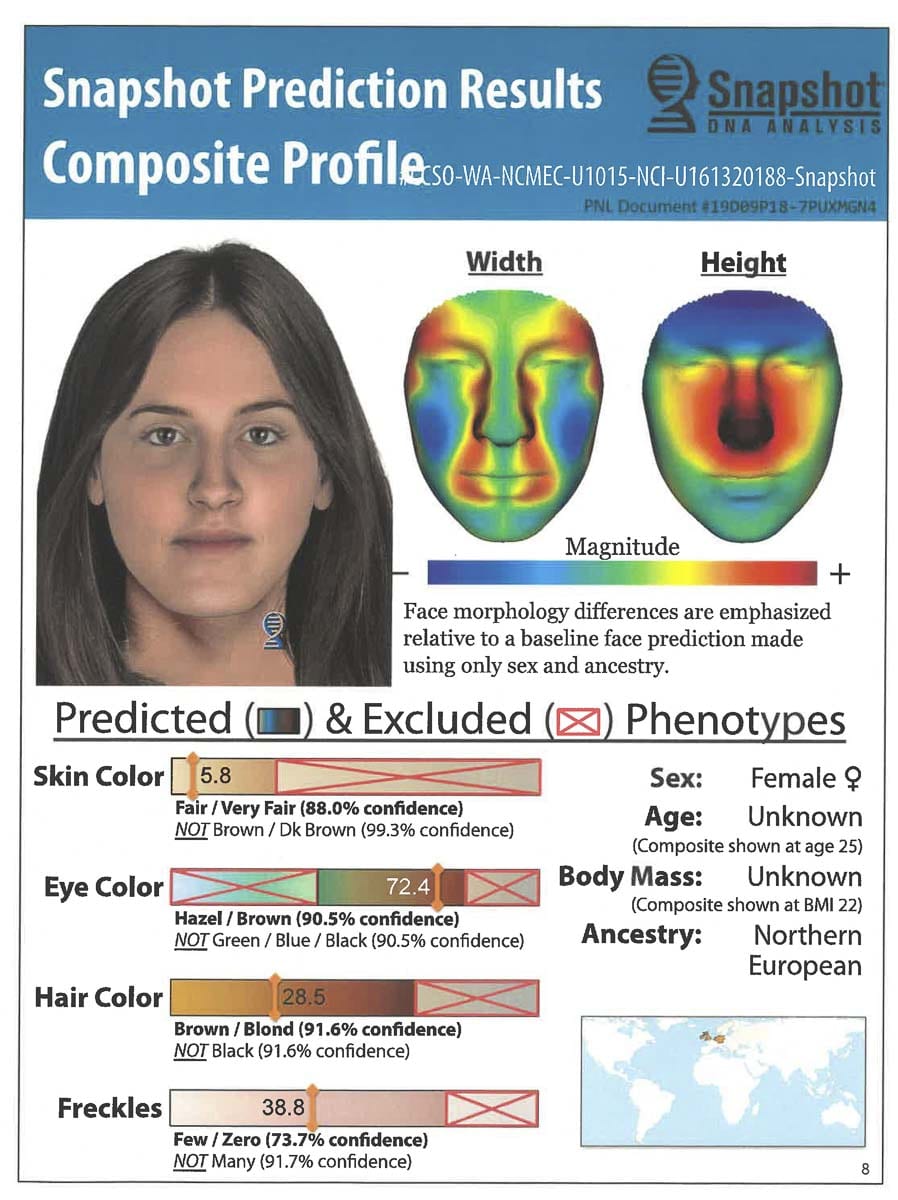The Sheriff’s Cold Case Unit is seeking background information on persons who resided in the Portland-Vancouver area between 1970 and 1980
VANCOUVER — The Clark County Sheriff’s Office is seeking the assistance of the media and the public regarding an unsolved case from 1980.

The Sheriff’s Cold Case Unit is seeking background information on the following persons who resided in the Portland-Vancouver area between 1970 and 1980:
• Sandra Renee (“Sandy”) Morden, born in 1962 and who was a juvenile in the 1970s
• Andrew Bain (“Andy”) Morden, Sandy’s father, who was born in 1930 and who would have been in his 40s in the 1970s
• Kathryn Irene (“Irene”) Morden, Sandy’s mother, who was born in 1938, whose maiden name was Long, and who would have been in her 30s during the 1970s.
The Mordens moved to Portland from the San Francisco Bay area. Andy Morden, who was a Marine Corps veteran of the Korean War era, worked in the maritime trades on tugboats providing service to pulp, paper and logging interests on the Willamette and Columbia Rivers. Andy and Irene were divorced in the early 1970s, with Andy assuming custody of Sandy. Following the divorce, Irene lived separately at various locations in Portland and in the Bay area. Andy and Sandy lived in Portland and Vancouver. Sandy attended Binnesmead Middle School (now Harrison Park Middle School) on S.E. 87th Avenue in Portland in 1974 and 1975. She attended Gaiser Middle School on N.E. 99th Street in Vancouver in 1975 and 1976. She attended Wilson High School on S.W. Vermont Street in Portland in 1976 and 1977. Irene Morden passed away in San Francisco in 1988. Andy Morden retired to Ilwaco, Washington, where he died in 1999. Sandy’s whereabouts between May 1977 and February 1980 have yet to be determined.

On Feb. 24, 1980, approximately 39 years ago, the Clark County Sheriff’s Office investigated the discovery of human skeletal remains located along Fly Creek near Amboy, in rural Clark County. The victim, believed to be female and in her mid-to-late teens, was the victim of a homicide. Over the years, three facial reconstructions and multiple media releases were unsuccessful in identifying the remains, often referred to as Fly Creek Jane Doe. However, as a result of DNA and genealogy investigations, Sheriff’s detectives have determined that the recovered remains are those of Sandy Morden.
In 2019, Clark County detectives sought the services of Parabon NanoLabs, a DNA technology company in Virginia, for assistance in attempting to identify the Fly Creek Jane Doe. The first step in the identification process was the company’s Snapshot DNA Phenotyping Service. Phenotyping is the process of predicting physical appearance and ancestry from unidentified DNA evidence. Using DNA evidence from this investigation, Snapshot produced trait predictions for the associated person of interest (POI). Individual predictions were made for the subject’s ancestry, eye color, hair color, skin color, freckling, and face shape. By combining these attributes of appearance, a Snapshot composite was produced depicting what the POI may have looked like at the time of her death.
After the phenotyping was completed, the newest Snapshot service offering genetic genealogy was applied as the second step of Parabon’s identification process. Genetic genealogy is advanced DNA testing in combination with innovative genetic analysis, sophisticated identification techniques and traditional genealogical methods to establish the relationship between an individual and his/her ancestors. For forensic investigations, genetic genealogy is used to generate highly informative leads as to the possible identity of an unknown victim or offender.
In its investigation, Parabon submitted a genetic data profile created from the unknown crime scene DNA sample to a public genetic genealogy database** for comparison in hope of finding individuals who share significant amounts of DNA with the unknown subject. These genetic links serve as clues to inform traditional genealogy research. Using online genealogy databases, newspaper archives, public family trees, obituaries, and other public records, family trees of the DNA links are constructed to reach back to the set of possible common ancestors. Descendant research is then employed to enumerate the possible identities of the unknown subject.

Following the combined process of phenotyping and genetic genealogy, Clark County detectives contacted probable family members identified by Parabon. One family member advised detectives that Sandra had been missing since the 1970’s and provided a name, family history, photographs and a family DNA reference sample which confirmed the relationship between the Fly Creek Jane Doe and the Morden family.
Clark County Sheriff’s detectives would like to hear from friends, acquaintances, neighbors, coworkers, fellow veterans and classmates of Andy, Irene and Sandy Morden, particularly those who interacted with them after 1970. Persons with any information are urged to contact Det. Lindsay Schultz Lindsay.Schultz@clark.wa.gov or (360) 397-2036
Information provided by Clark County Sheriff’s Office.




